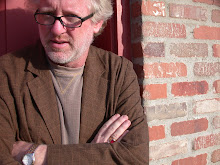
It’s a very old and very bad joke:
Q: Can you play piano?
A: I don’t know; I’ve never tried.
It’s one of those jokes that’s funny (sort of) because it’s just so stupid. Who could ever confuse playing the piano with one of those accidental abilities—touching your tongue to the tip of your nose or wiggling your ears—that you might be able to do if you just gave it a try?
And yet I meet so many people who think publishing fiction might be something they could do, if they just gave it a shot. People come by my office every semester toting book-length manuscripts they want me to read and critique. Usually, I turn them away. I tell them I can't possibly read everything I'm asked to read. But I have slogged through many a manuscript over the years, and they are almost always awful.
Emily Dickinson, in one of her letters to Atlantic Monthly editor Thomas Wentworth Higginson, asked him to teach her to write. “I would like to learn,” she wrote. “Could you tell me how to grow—or is it unconveyed—like Melody—or Witchcraft?”
I like Dickinson's comparison of writing to melody because we all seem to subscribe to the notion that something called "ear" plays a role in music.
Yet I meet so many people who passionately want to write but just don't have an ear for it. Some are like those people in the first week of American Idol. Their ear is so bad, they have no idea they can’t sing. They honestly can’t hear the difference between what they’re doing and what a real singer does. We laugh at their absurd lack of talent, and, worse yet, at their glaring lack of self-awareness.
I make most of my salary teaching creative writing in a university English department, and that doesn’t sit well with me sometimes. The longer I do it, the more convinced I am that it’s impossible. Writing—real writing—requires such a complex cluster of skills, it can’t be taught. Not everyone has the innate ear for the cadences and nuances of language. There is a huge, unspannable gulf between literacy and literature.
I suppose all I'm saying is that writing—good writing—is a difficult thing. I think we need to show greater appreciation to those rare people who write us novels and stories—or emails and blogs—that charm us and inspire us with the melody and witchcraft of their words.


2 comments:
"I think we need to show greater appreciation to those rare people who write us novels and stories—or emails and blogs—that charm us and inspire us with the melody and witchcraft of their words".
Terribly true.
Melody and witchcraft -- what an apt choice of words. Indeed, all my favorite stories seem "magical" in the way they leave me feeling. I am left in awe of how the author literally wove a story just as carefully as one weaves a rug of a thousand threads.
And not that you need my approval, but just for the record, I think you can feel all right about making most of your income teaching mass amounts of students about creative writing. I think that for those who wander into your classroom possessing that "ear" for writing, your valuable instruction truly helps to tune the instrument.
So, keep it up! :-)
P.S. - You know I am not just saying this to get a good grade, because I am not your student anymore, haha. :-)
Post a Comment